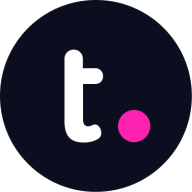

Jira and Teamwork are project management tools. Jira holds the advantage in managing complex, large-scale projects due to its flexibility, while Teamwork is more intuitive for small to medium teams.
Features: Jira offers customizable workflows, powerful integration capabilities, and advanced reporting tools tailored to agile methodologies. Teamwork provides simple project tracking, time tracking, and effective communication tools that enhance team collaboration.
Ease of Deployment and Customer Service: Jira's deployment requires more technical expertise, with extensive setup options and customization for comprehensive project control. Teamwork offers a streamlined, user-friendly setup process with robust support services for minimal ramp-up time and ongoing assistance.
Pricing and ROI: Jira typically involves higher upfront costs due to its feature-rich offerings, potentially providing high ROI for large-scale projects needing in-depth capabilities. Teamwork offers competitive pricing with straightforward plans, providing excellent ROI for teams focusing on collaboration and efficiency.


Jira is a powerful cloud- and subscription-based application lifecycle and issue management solution. It is designed to aid users both in project management and in resolving any issues that arise at any point in the software development process. It is especially concerned with easing the ability of developers to collaborate.
Jira Benefits
Some of the ways that organizations can benefit by choosing to deploy Jira include:
Jira Features
Real-time notification feature. Users can set Jira so that it offers them notifications that contain critical information in real time. It can send users email notifications when pressing issues have been updated. They can also set it to notify them about tasks that may be due, or other similar events.
Reviews from Real Users
Jira is a powerful solution that stands out when compared to many of its competitors. Two major advantages it offers are its workflow engine and its highly customizable dashboard.
Bharath R., the tool implementation and project management lead at a financial services firm, writes, “I feel the strongest feature of Jira is its workflow engine. It empowers us to automate our workflows within our organization. It's the one characteristic of Jira which I think can help any organization, be it in any domain.”
Uday J., a staff engineer at a computer company, says, “Another thing that I like a lot about Jira is that in the dashboard, you can plug the modules that you want. You can enable certain sections. For example, you can show trend history, open Jira tickets, etc. Some of the managers have created a dashboard for each engineer.”
Teamwork is a comprehensive project management and collaboration software that enables teams to work together efficiently and effectively. With its wide range of features and intuitive interface, Teamwork helps streamline workflows, improve communication, and increase productivity.
One of the key features of Teamwork is its task management capabilities. Users can create tasks, assign them to team members, set due dates, and track progress. This ensures that everyone is on the same page and deadlines are met. Additionally, users can create task dependencies, allowing for better coordination and sequencing of work.
Teamwork also offers powerful collaboration tools. Users can create and share documents, files, and notes, making it easy for team members to access and collaborate on important information. The software also includes a messaging feature, enabling real-time communication and reducing the need for lengthy email threads.
Another notable feature of Teamwork is its time-tracking functionality. Users can log their time spent on tasks, providing valuable insights into project progress and resource allocation. This feature is particularly useful for tracking billable hours and ensuring accurate invoicing.
Teamwork also offers robust project planning and scheduling capabilities. Users can create project timelines, set milestones, and allocate resources. The software provides a visual representation of project progress, allowing teams to easily identify bottlenecks and adjust timelines accordingly.
Furthermore, Teamwork integrates with a wide range of third-party applications, such as Google Drive, Dropbox, and Slack, enhancing collaboration and streamlining workflows. The software also offers mobile apps, enabling users to stay connected and productive on the go.
We monitor all Project Management Software reviews to prevent fraudulent reviews and keep review quality high. We do not post reviews by company employees or direct competitors. We validate each review for authenticity via cross-reference with LinkedIn, and personal follow-up with the reviewer when necessary.